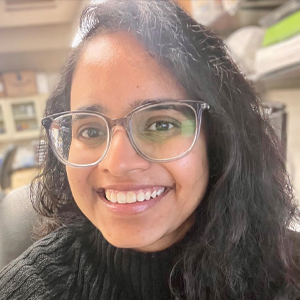In memoriam: Charles Kasper
Charles Boyer Kasper, a professor emeritus at the University of Wisconsin McArdle Laboratory for Cancer Research and a member of the American Society of Biochemistry and Molecular Biology since 1970, died Sept. 5 in Appleton, Wisc. He was 88.

Kasper was born April 27, 1935, in Illinois. As a high school senior, he joined the Navy Reserve and served for eight years. He studied chemistry at the University of Illinois Urbana–Champaign, then transferred to the University of Illinois Chicago College of Pharmacy, graduating in 1958. He received a scholarship for graduate school at the University of Wisconsin–Madison, where he worked in Harold Deutsch’s lab and earned his Ph.D. in physiological chemistry in 1962. With a National Institutes of Health fellowship, he pursued postdoctoral studies at the University of Utah and then at UCLA, where he was hired as an assistant professor.
When he was offered his own lab at the McArdle Laboratory, Kasper moved with his family in 1965 to Madison, Wisconsin and remained there until he retired, establishing a successful research program, teaching graduate-level oncology and toxicology courses, and mentoring undergraduates, medical and doctoral students, and postdoctoral fellows for 38 years.
Kasper studied proteins of the endoplasmic reticulum and nuclear envelope. His research focused on understanding the biochemical regulation of enzymes involved in the metabolism of chemical carcinogens, including NADPH-cytochrome P450 reductase and epoxide hydrolase. His lab discovered the CYP3A gene family and pioneered understanding its contribution in the metabolism of numerous endogenous compounds and more than half of all prescription drugs. Throughout his career, he had uninterrupted research funding from the NIH and other organizations, and he was an author on more than 100 peer-reviewed articles.
For many years, Kasper served on the editorial boards of the Journal of Biological Chemistry and Chemical-Biological Interactions and on study sections and advisory boards for the American Cancer Society. He was chair of the Safety Committee for the university’s oncology department for more than 20 years.
He is survived by his wife of 66 years, Mary Jean, and four children, seven grandchildren and five great-grandchildren.
Read more about Kasper’s life and scientific contributions here.
Enjoy reading ASBMB Today?
Become a member to receive the print edition four times a year and the digital edition monthly.
Learn moreGet the latest from ASBMB Today
Enter your email address, and we’ll send you a weekly email with recent articles, interviews and more.
Latest in People
People highlights or most popular articles

Building a career in nutrition across continents
Driven by past women in science, Kazi Sarjana Safain left Bangladesh and pursued a scientific career in the U.S.

Kiessling wins glycobiology award
She was honored by the Society for Glycobiology for her work on protein–glycan interactions.

2026 ASBMB election results
Meet the new Council members and Nominating Committee member.

Simcox wins SACNAS mentorship award
She was recognized for her sustained excellence in mentorship and was honored at SACNAS’ 2025 National Conference.

From humble beginnings to unlocking lysosomal secrets
Monther Abu–Remaileh will receive the ASBMB’s 2026 Walter A. Shaw Young Investigator Award in Lipid Research at the ASBMB Annual Meeting, March 7-10 in Washington, D.C.

Chemistry meets biology to thwart parasites
Margaret Phillips will receive the Alice and C. C. Wang Award in Molecular Parasitology at the ASBMB Annual Meeting, March 7-10 in Washington, D.C.

